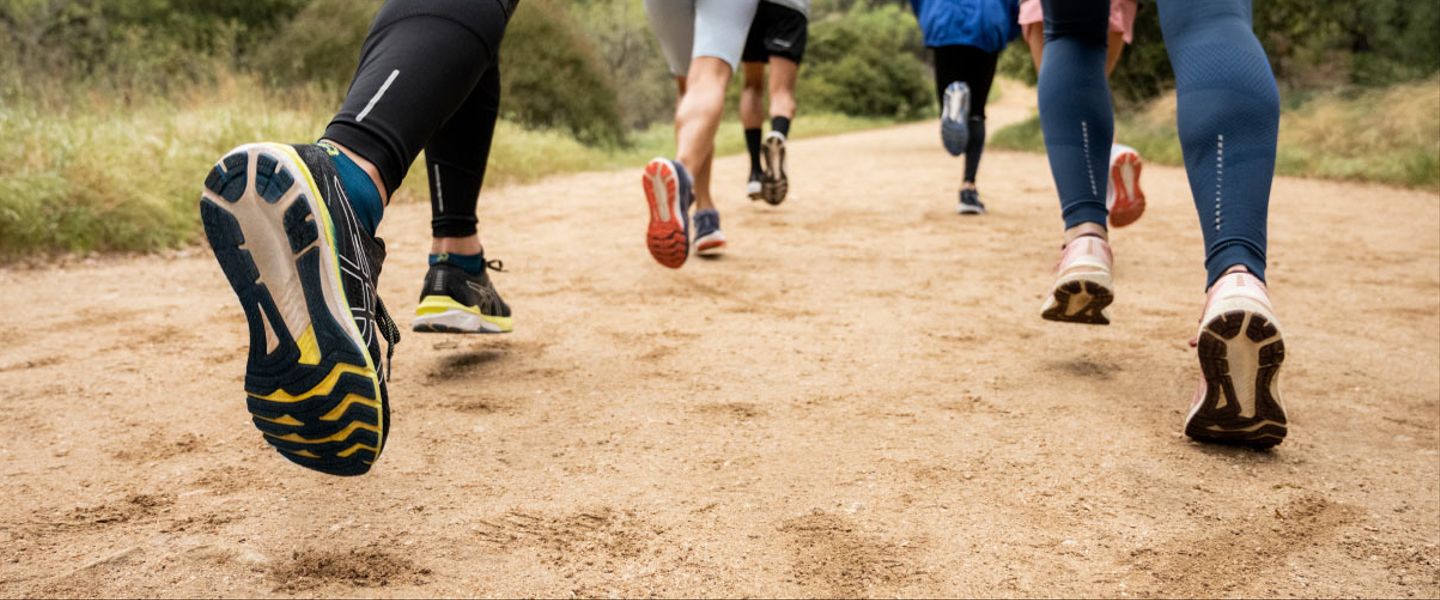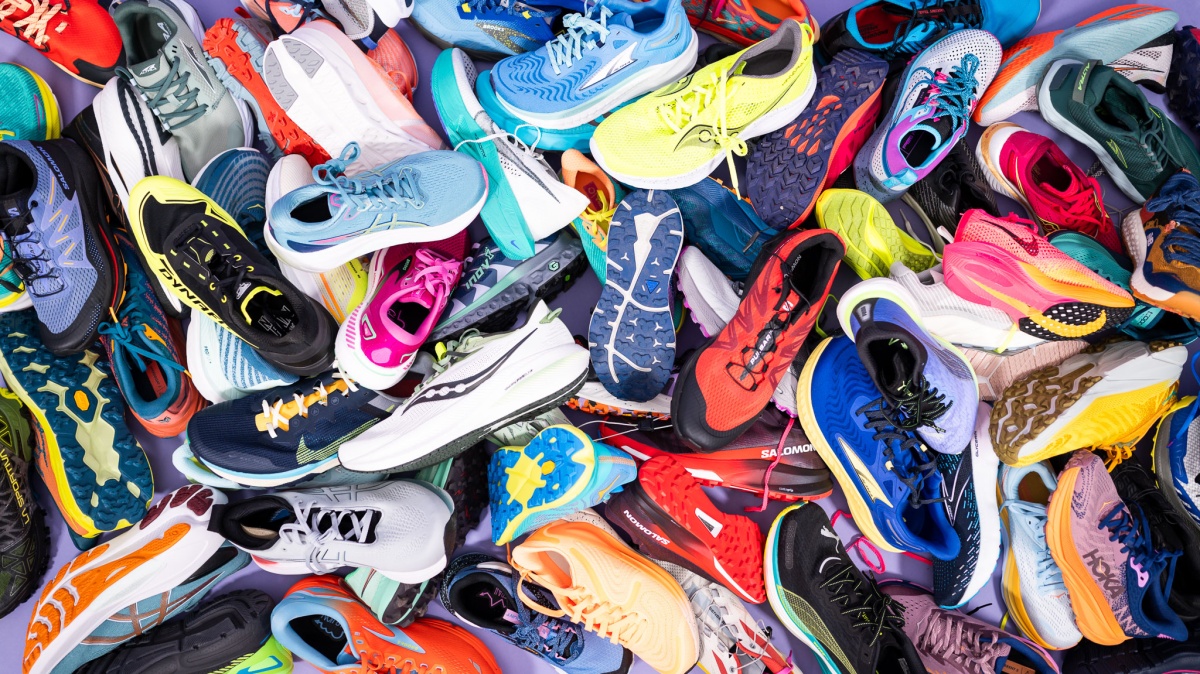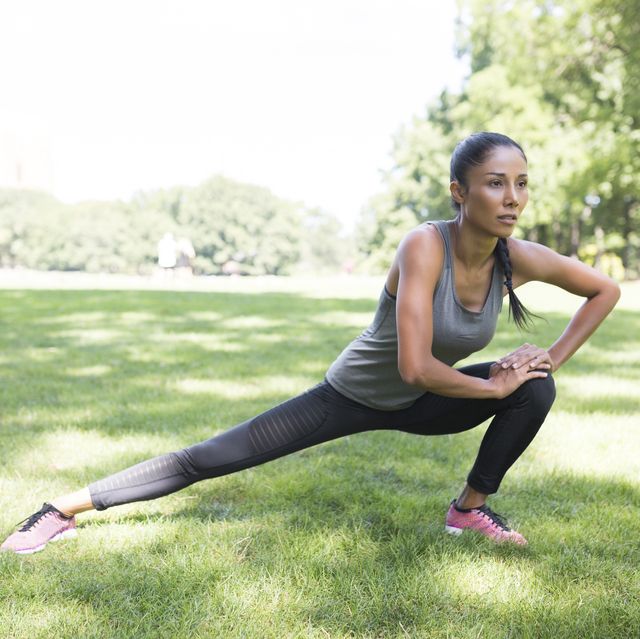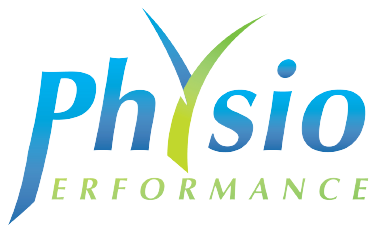In this blog post, we’ll share essential running tips for beginners that will not only enhance your performance but also prevent injuries. Let’s lace up those running shoes and embark on a transformative journey towards a healthier, fitter you!

Getting Started
Running your first 5K is an exciting goal, a popular distance for first timer runners, and the perfect way to get in shape and have some fun while exercising.
Even if you don’t consider yourself a runner (yet), almost anyone can be ready to run a 5K by starting slowly.
If you’re feeling nervous, you’re not alone. More experienced runners get nervous ahead of races too, but many new runners worry they’re “too slow” or they will be last or not finish at all.
Facing your fears and overcoming them will give you a big confidence boost.
1. Be proud of yourself: Crossing the finish line of your first race will be something you’ll remember for a long time. And improving a Personal Best is a goal that can continue to stay with you as a runner.

2. Wear the right clothes & running gear: From choosing the most efficient running shoes & sportswear, to knowing what to wear in any temperature or weather, it’s most important to feel comfortable and to be able to run without any restrictions.

3. Choose a training plan that motivates you: There are many overwhelming 5K training programs available. The couch to 5k app is a good way to start – it’s full of great tips to get motivated and track your progress.
During our sessions here at the Physio Performance clinic, we often get asked about how to avoid those aches that tend to come during a run & also that post run stiffness.
The key to this is an effective warm up. This is vital for everyone: you will even see Olympic athletes completing vigorous warm ups before their events.
Your warm-up needs to prepare you for the transition from zero to race effort. Warm up regimens vary based on the distance of the race and your race goal.
How To Avoid Injury
The shorter the race, the more thorough the warm-up must be. If your goal is to reach a personal best, you will need to be at your own race speed right from the start. This requires a thorough warm-up to prepare you to start at that pace to avoid a slow opening.
A good warm up for a 5k run would be:
15-20 minutes prior to the race start, take 3 minutes and walk briskly gradually raising your heart rate and circulation to the working muscles. Then run 3-5 minutes at an easy pace and then walk briskly 3-5 more minutes.
If you run-walk, alternate running for 1 minute and walking 1 minute for 6 minutes instead of running continuously.
Your body will be ready to go!

Strengthen Up That Knee Joint!
It’s vitally important to ensure your knee muscles are strong enough to take the load that comes with running. These days, everyone thinks the answer to any problem or physical pain is to just ‘do some exercises’. Exercises are one of the secrets to ending and easing knee pain naturally, but there’s a right way and a wrong way to go about it.
If your knee is painful or swollen, the first thing you have to do is STOP exercising. If pain levels are ok, take a gentle walk for 20 minutes or so on a flat surface, but don’t continue your usual exercise routine, as this can cause things to worsen.
A knee joint that’s painful and swollen is a sign that your knee may not be strong enough to take the load, so here are our top tips…
- Focus on improving the strength and control of your quad muscles (the muscles at the front of your upper leg).
- You also need to consider having lower back muscles that are strong and hips that move freely.
- You need to be wearing the right footwear with enough cushion to absorb shock (the impact every time your foot lands when you walk).
Orthotics Can Help Ease Foot Pain
Whether you’re a new or experienced runner, and you’re experiencing foot pain, we can help! Have you ever thought about custom-made orthotics? They are a corrective device worn inside your shoe that helps the muscles, tendons and bones of your feet and lower legs function without you suffering from pain and or stiffness. Custom-made orthotics are manufactured from a 3-D image of your foot, using Gaitscan technology.
When appropriately prescribed, orthotics can decrease pain not only in your feet, but more commonly in other parts of the body, such as your knees, hips & lower back.
The ‘off the shelf’ orthotics you may have seen online or in shops can be helpful also, but are likely to be more of a generic insert, and are not tailored to your needs.
Here in the clinic, our therapist’s can do a full assessment, using our state-of-the-art Gaitscan technology to scan your feet. This then enables us to create orthotics based on the contours of your feet.
If you have any orthotics questions, feel free to give us a call on 041-9877059 or email us at info@physioperformance.ie and we can chat you through the process in more detail.
You can also find out more in our blog on Orthotics here!

Are you looking to start running?
From advice to strength training to deep tissue sports massage, Physio Performance is here to help you from start to finish!
Next step:
Want to get in touch with our team?
You can contact us on 041-9877059 or at info@physioperformance.ie. You can also book an appointment online with us HERE.

